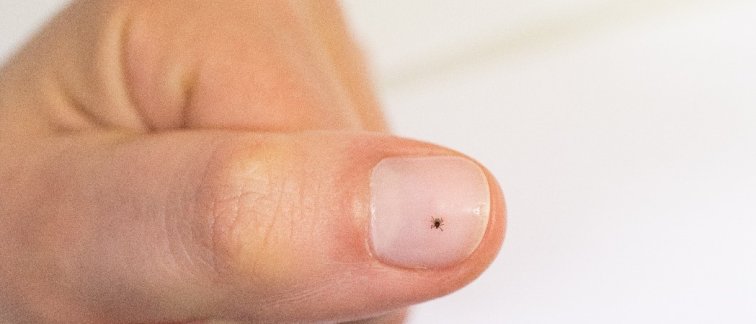Ticks transmit many pathogens causing diseases in humans and animals, posing a growing healthcare challenge in the Northern hemisphere. Both tick bites and Lyme disease cases have surged in recent decades. Lyme disease has diverse manifestations, complicating diagnosis, and late detection can lead to long-term issues or post-treatment Lyme disease syndrome, straining the healthcare system. Other tick-borne diseases (TBDs) are also increasing. Currently, besides raising awareness and symptom recognition, no definitive method exists to safeguard humans against TBDs, except a Lyme disease vaccine that is currently still in human clinical trials and a tick-borne encephalitis virus vaccine, primarily used in Central and Eastern Europe where the virus is endemic. Would it be possible to vaccinate against the tick, making humans immune to tick bites, and providing protection against multiple TBDs? To answer that question, Amsterdam UMC researchers are launching the TICK ME study.
In the ongoing battle against tick-borne diseases (TBDs), a game-changing solution emerges in the form of an anti-tick vaccine. What sets this innovation apart is its ability to provide a compelling defense against not just one (such as Lyme diseases or TBEV), but multiple TBDs at the same time, particularly for high-risk individuals. This groundbreaking approach has already found success in the veterinary realm, where it effectively shields livestock from a spectrum of TBDs. The rationale behind anti-tick vaccines stems from the phenomenon coined as ‘tick immunity’. Growing evidence exists for this concept, which include the impaired feeding and pathogen transmission after multiple tick bites. Now, the researchers embark on an unprecedented journey in the TICK ME study to explore tick immunity in humans, opening the door to a new era of TBD prevention through an anti-tick vaccine.
TICK ME study
The TICK ME study aims to validate human tick immunity using an innovative human tick challenge model. In this model, healthy participants will be deliberately exposed to ticks in a highly controlled setting. These ticks will be placed under sealed patches on the forearm for several days to allow them to complete their blood meal. Participants will undergo multiple tick challenges with intervals of a few weeks between each challenge. These intervals ensure that the immune system can respond effectively to each challenge before the next exposure. Prior to their use in the study, the ticks will undergo thorough screening for known human pathogens to ensure they are pathogen-free and will not cause infection in the participants.
By conducting multiple challenges, researchers can closely monitor and analyze any variations or changes in the human immune response or tick feeding phenotype during subsequent challenges, providing valuable insights into the development of immune responses against ticks in humans.
In the TICK ME study, researchers will examine various tick feeding parameters, such as tick weight. The reduction in tick weight after feeding in subsequent challenges serves as an indicator of the tick's success in obtaining a blood meal from the host. This reduction would suggest the development of an effective immune response in the host.
Furthermore, researchers are also assessing signs of an immune response in the subjects, such as itching and local redness. The researchers expect to see an increase in itchiness and local redness with each subsequent challenge, as a sign of an immune response in the host. Finally, the researchers are striving to pinpoint the specific tick antigens responsible for triggering this unique form of human tick immunity. These antigens are of great value in the development of a future anti-tick vaccine.
The study started in September 2023, and it is expected that all participants will have finished the tick challenges and study procedures by spring 2024, allowing for subsequent analysis.
Researchers involved at Amsterdam UMC
Joppe Hovius, Professor of Medicine at Amsterdam UMC
Hannelore Beaart, MD, PhD Candidate Infectious Diseases at Amsterdam UMC
Stefanie Gauw, Research coordinator at Amsterdam UMC
Guido Clerx, Research nurse at Amsterdam UMC
For more information contact Hannelore Beaart (tickme@amsterdamumc.nl).
Funding
The TICK ME study is funded by ZonMw.
Text: Esmée Vesseur | Image: Dieuwertje Hoornstra
Learn more about our Amsterdam institute for Infection and Immunity research into tick-borne diseases and lyme:

